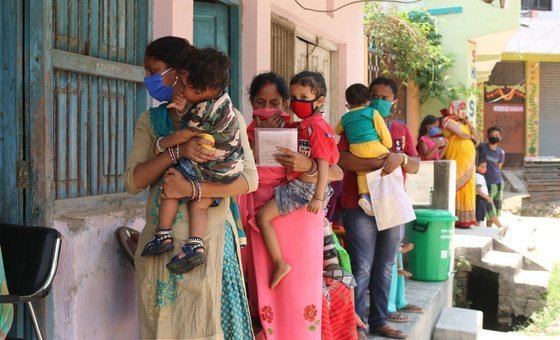The United Nations Health Organization emphasized strengthening healthcare services while sharing these findings in a global survey released on Thursday on ‘Universal Health Coverage’ Day.
‘Global Expenditure on Health: Emerging from Epidemics’, The analysis shows that per capita government spending on health is expected to decline in 2022 across all income groups. However, there was a jump in the amount of money spent by governments in the early years of the Covid-19 pandemic.
The World Health Organization has called this a worrying trend and warned that it could harm progress towards universal health coverage.
Universal Health Coverage Day is a key part of the 2030 Agenda for Sustainable Development, which aims to ensure access to essential health services for everyone and financial support for health services, leaving no one affected.
The theme of this day in 2024 is: Health, it’s the government’s responsibility. In view of this, the governments of the countries have been urged to prioritize investment in the health sector in the national budget and protect any individual from having to choose between health care and basic needs.
Health is important
According to one estimate, four and a half billion people around the world do not have access to basic health care, while two billion people suffer from financial hardship due to the cost of health care.
The cost of medical care is high, and many people are forced to choose between necessary treatment and food and shelter.
This challenge has the greatest impact on vulnerable populations, including women, children and adolescents, who face barriers to health care.
WHO Director-General Tedros Adhanom Ghebreyesus noted in his message that while access to health services is improving, high prices are driving many people into financial hardship and poverty.
“Universal health coverage reminds us that health for all means that everyone can access health services when they need them without financial hardship.”
Cost of not taking action
A reduction in public investment in the health sector could have far-reaching consequences, the UN agency said. In the absence of adequate funding, the pressure on the health system will increase and the general public will face difficulties in meeting their regular health needs and care in times of crisis.
The COVID-19 pandemic has shown that health protection and universal health coverage are interconnected and that health systems need to be strengthened to protect health for all.
Investing in health is not only a moral imperative, but also important from an economic perspective. If health care costs are within the reach of the general public, labor force participation increases, productivity is strengthened, and social connections are deepened.
Conversely, if health care costs push people into poverty, this can have dire economic consequences.

